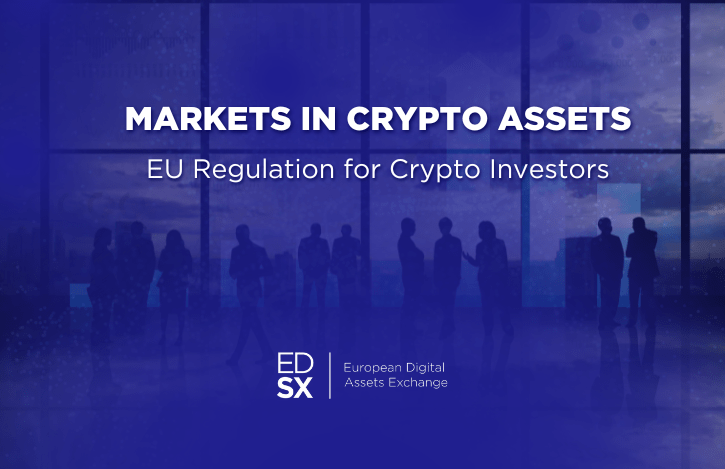The rapid growth of the crypto-asset market has necessitated regulatory measures to safeguard investors and ensure market stability. Responding to this urgency, the European Union (EU) has made significant progress by approving the Markets in Crypto Assets (MiCA) regulation. This year, MiCA’s enactment marks a pivotal moment in cryptocurrency’s future, akin to MiFID II’s impact on traditional markets. MiCA’s impact on the crypto industry, akin to MiFID II’s transformation in traditional markets, is explored in this article.
MiCA focuses on investor protection with a regulatory framework covering crypto-asset issuers, particularly those dealing with stablecoins like ARTs and EMTs. Issuers of these tokens must secure authorization from their country’s Central Bank and publish informative white papers. Furthermore, Crypto-Asset Service Providers (CASPs), responsible for issuing stablecoins, require authorization from the European Banking Authority (EBA), the designated supervisory body for major ARTs and EMTs. Wallet providers will also require licenses under MiCA.
Further regulations governing specifications and obligations will be developed through two and three-level processes. These texts will assist firms seeking CASP authorization and define the supervisory responsibilities of the National Competent Authorities (NCAs). To protect consumers, the MiCA mandates that the EBA maintain a public register of non-compliant crypto-asset service providers. Consequently, service providers from high-risk third countries or non-cooperative tax jurisdictions will have to implement enhanced checks. Shareholders and management of crypto-asset service providers may also face stricter requirements.
As MiCA is about to be implemented, companies are preparing for the 12-18 month transition period. Compliance with stringent anti-money laundering requirements for account opening is necessary, presenting a significant change for new businesses entering the European market. Consequently, EU-regulated entities that already adhere to regulatory standards are in a better position.
Even Binance, a well-established platform, must adapt and comply during the transition period. This includes existing crypto registrations in the EU. EU agencies, such as the European Securities and Markets Authority, will provide additional guidelines to clarify unaddressed aspects in the initial legislation. The treatment of non-fungible tokens (NFTs) and decentralized finance is currently under discussion. As the European Commission evaluates the necessity for dedicated NFT legislation in the EU.
National regulators in EU member states will enforce the MiCA law. Concerns about potential discrepancies among member states have arisen. Some states impose additional hurdles or offering more lenient regulations to attract businesses. Ensuring consistent implementation across member states is crucial to establish a level playing field and prevent regulatory arbitrage.
The approval of the Markets in Crypto Assets (MiCA) regulation marks a significant step forward in regulating the crypto-asset market in the European Union. The regulation aims to protect retail investors, ensure market integrity, and bring stability to the sector. Companies preparing for MiCA need clarity from EU agencies as well as consistent implementation to establish a universal standard. All to foster crypto industry innovation.

Based in Zug, the platform is fully compliant with all Swiss laws related to financial intermediaries, banking, anti-money laundering, and organized trading facilities. Among its core values, there are innovative solutions through blockchain technology, which ensures security and liquidity.
EDSX is the first platform in Europe with primary and secondary markets for both institutional and retails. EDSX is a pioneering platform that employs the world’s leading technology to globally list security tokens in both primary and secondary markets, listing digital securities of real financial instruments to the public with a decentralized peer-to-peer exchange. Our goal is to fully engage every aspect of the financial revolution.
Do you have a question for us?
Send your query here:
[email protected]

